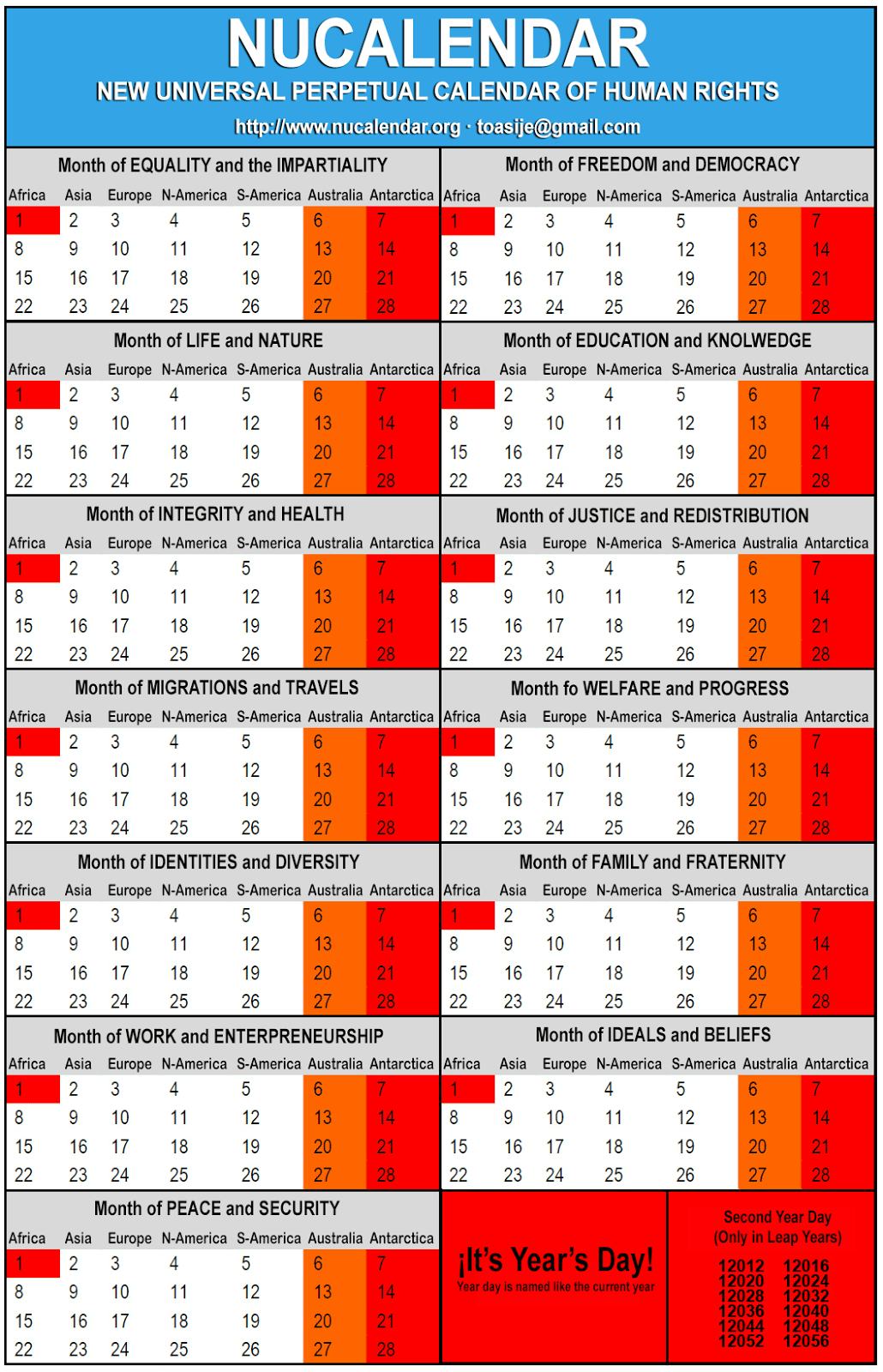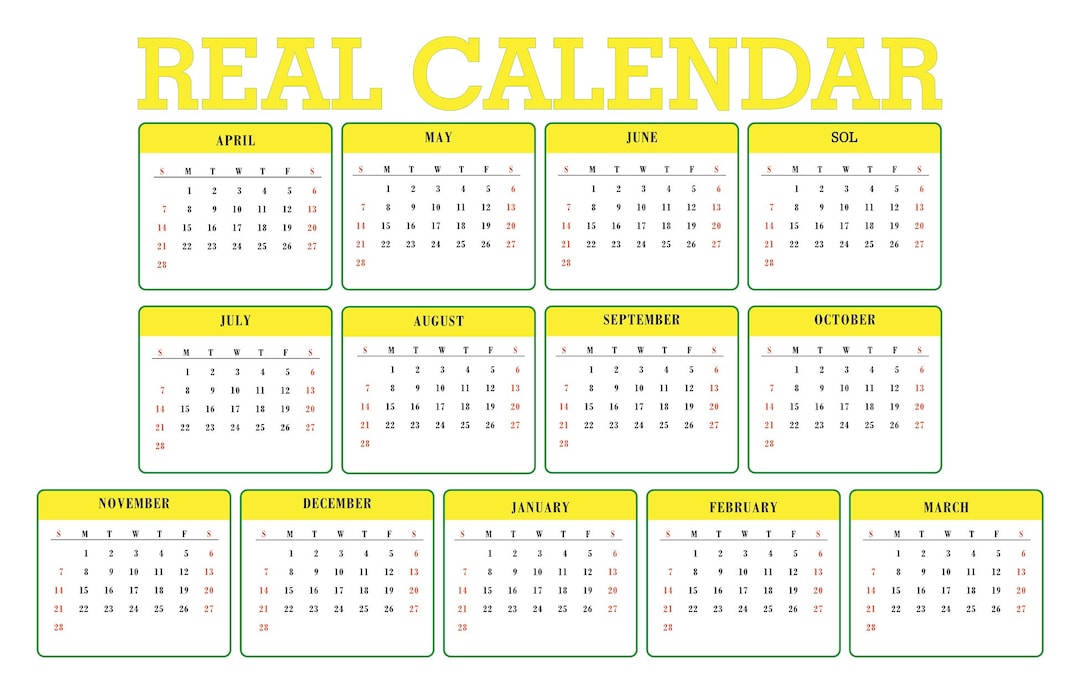Calendar 13 Months 28 Days - Why 13 months of 28 days? Prehistoric calendars 13 months of 4 weeks each the first year of 364 days appears in the calendar as used in northern europe as early as 14,000. Each month corresponds to one complete lunar cycle, maintaining a harmonious relationship.
Why 13 months of 28 days? Each month corresponds to one complete lunar cycle, maintaining a harmonious relationship. Prehistoric calendars 13 months of 4 weeks each the first year of 364 days appears in the calendar as used in northern europe as early as 14,000.
Why 13 months of 28 days? Prehistoric calendars 13 months of 4 weeks each the first year of 364 days appears in the calendar as used in northern europe as early as 14,000. Each month corresponds to one complete lunar cycle, maintaining a harmonious relationship.
My Proposal For a 13Month International Fixed Calendar
Each month corresponds to one complete lunar cycle, maintaining a harmonious relationship. Prehistoric calendars 13 months of 4 weeks each the first year of 364 days appears in the calendar as used in northern europe as early as 14,000. Why 13 months of 28 days?
13 Months Calendar Tomi Agnesse
Why 13 months of 28 days? Prehistoric calendars 13 months of 4 weeks each the first year of 364 days appears in the calendar as used in northern europe as early as 14,000. Each month corresponds to one complete lunar cycle, maintaining a harmonious relationship.
28 Day Calendar Calculator Margi Saraann
Each month corresponds to one complete lunar cycle, maintaining a harmonious relationship. Prehistoric calendars 13 months of 4 weeks each the first year of 364 days appears in the calendar as used in northern europe as early as 14,000. Why 13 months of 28 days?
HISTORY of the 13Month, 28Day Calendar CalendarTRUTH
Prehistoric calendars 13 months of 4 weeks each the first year of 364 days appears in the calendar as used in northern europe as early as 14,000. Why 13 months of 28 days? Each month corresponds to one complete lunar cycle, maintaining a harmonious relationship.
Calendar of 13 Months Encyclopedia MDPI
Prehistoric calendars 13 months of 4 weeks each the first year of 364 days appears in the calendar as used in northern europe as early as 14,000. Each month corresponds to one complete lunar cycle, maintaining a harmonious relationship. Why 13 months of 28 days?
Calendar of 13 Months Encyclopedia MDPI
Why 13 months of 28 days? Each month corresponds to one complete lunar cycle, maintaining a harmonious relationship. Prehistoric calendars 13 months of 4 weeks each the first year of 364 days appears in the calendar as used in northern europe as early as 14,000.
13month 28day Format Calendar 364day Printable Aprilmarch Layout
Prehistoric calendars 13 months of 4 weeks each the first year of 364 days appears in the calendar as used in northern europe as early as 14,000. Each month corresponds to one complete lunar cycle, maintaining a harmonious relationship. Why 13 months of 28 days?
13 Month, 28 Day Calendar Awakening369
Each month corresponds to one complete lunar cycle, maintaining a harmonious relationship. Prehistoric calendars 13 months of 4 weeks each the first year of 364 days appears in the calendar as used in northern europe as early as 14,000. Why 13 months of 28 days?
Unraveling the 13 Month, 28 Day Calendar YouTube
Each month corresponds to one complete lunar cycle, maintaining a harmonious relationship. Why 13 months of 28 days? Prehistoric calendars 13 months of 4 weeks each the first year of 364 days appears in the calendar as used in northern europe as early as 14,000.
13 Month 28 Day Calendar With Diverse Female Artwork Etsy
Why 13 months of 28 days? Each month corresponds to one complete lunar cycle, maintaining a harmonious relationship. Prehistoric calendars 13 months of 4 weeks each the first year of 364 days appears in the calendar as used in northern europe as early as 14,000.
Each Month Corresponds To One Complete Lunar Cycle, Maintaining A Harmonious Relationship.
Why 13 months of 28 days? Prehistoric calendars 13 months of 4 weeks each the first year of 364 days appears in the calendar as used in northern europe as early as 14,000.






